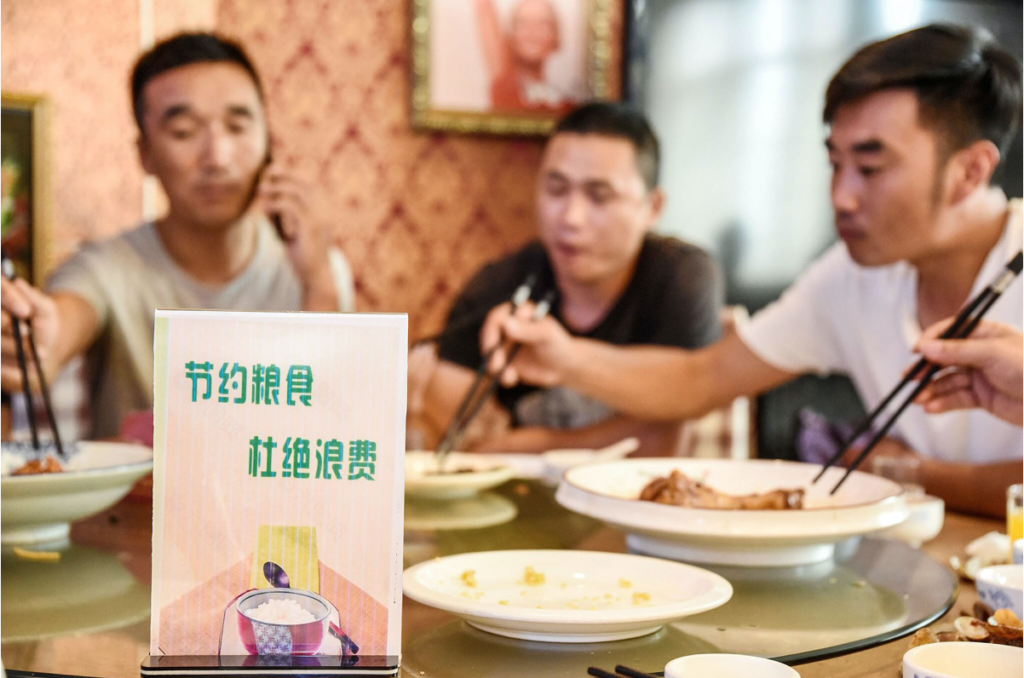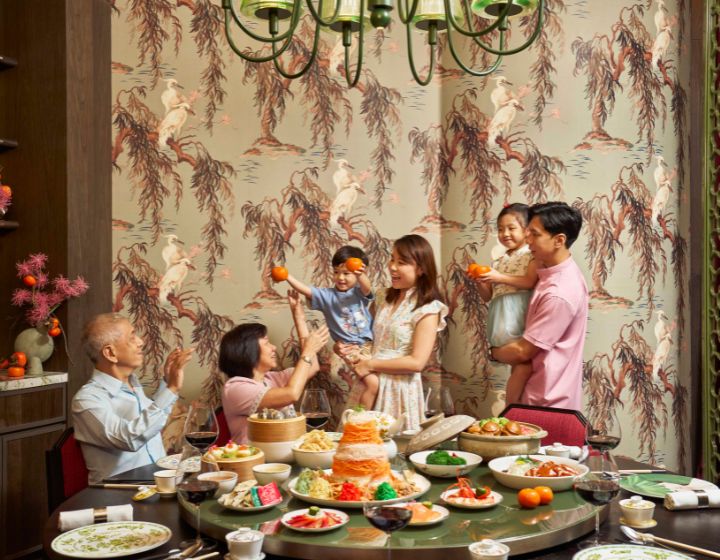20 New Ideas To Culinary Experiences Across China
20 New Ideas To Culinary Experiences Across China
Blog Article
Top 10 Tips For Dealing With copyright Product When Shopping In China
1. Know the most risky items to avoid Watches, watches, bags electronic devices, as well as designer clothing are the most frequently counterfeited. Be cautious when shopping for these products.Pro: Helps you focus your scrutiny on likely fake products.Cons: It can create suspicions regarding the authenticity of the product without sufficient understanding.
2. Find authentic product informationChoose a retailer that you know well. Know the details of their branding, materials, and stitching.Enhances your ability to detect subtle differences in copyright goods.Cons: Can be time-consuming to learn new products, particularly in the case of products that aren't familiar.
3. Shop in Trusted StoresIf you're looking for high-value products in malls or brands that are official like Beijing's China World Mall and Shanghai's Plaza 66, then stick to them.Pro: Guarantees the authenticity of the product and comes with receipts and warranties.Pro: Some products are more expensive in the street markets or smaller shops.
4. Make sure you have checked labels and tagsLook out for poor quality products, misspellings, or inconsistent fonts on packaging or tags.Pro: Quick way to identify fakes.Pros: copyright can be of high quality and closely resemble originals and are difficult to detect.
5. Beware of "Too Good to be True" PricesThe price of luxury goods typically is very affordable. This should trigger a red alert. The most expensive items are rarely sold at prices below the retail value.Pro: Avoids obvious frauds.Con: Some sellers employ moderate pricing to make counterfeits appear more convincing.
6. Request Certificates of AuthenticityTip - For items like jade (or antiques) brand-name merchandise or new products make sure you have authentic proof.Pro: Added confidence to your purchase.Cons: As certificates can be counterfeited, this method is not completely foolproof.
7. Try Before BuyingAsk to test high-value electronics or other items before making the final choice.Pro: Assists in confirming functionality and high quality.Pro: Some sellers may not allow testing or may limit tests to a few basic purposes.
8. Buy antiques with expertiseTips: To ensure that the antique is authentic, it must either have been verified by an expert or requires an extensive amount of study. Beware of them until you can confirm their authenticity.Pro: Reduces the risk of being scammed with a copyright or replica.Cons: You may overlook visually appealing, yet inauthentic ornaments.
9. Use an Local Guide you can TrustA friend or local guide who knows the market will be capable of assisting you to identify genuine sellers and spot fakes.Pro: Minimizes risks and helps save time when shopping in unknowledgeable markets.Cons: Some guides might charge a fee or a tip, which will increase the cost of your trip.
10. Trust your InstinctsDon't buy something if you feel it's not natural regardless of the way in which the vendor conducts business or the product's quality.Pro: It protects you from costly purchases.Cons: Over-prudence could lead you to miss genuine deals.
Cons of Avoiding copyright ProductsDurability. Authentic products last longer in shelf life and are better in value.Relax and be secure Don't be worried about being swindled or scammed.Legal Security: Certain countries penalize travellers for bringing back copyright goods.Brand Reputation: Supporting genuine products helps maintain ethical business methods.Cons of Avoiding Fake GoodsMore expensive: Genuine products are typically more costly.Limited Availability : Genuine products are not always readily available in street markets and smaller shops.There are a few fakes that provide a huge quantity of value.These suggestions will allow you navigate your shopping trip in China confidently and make an informed choice on whether or not you want to buy authentic items. Take a look at the most popular explore the riChness of Chinese food for site info including must-try foods in China, China famous food destinations, explore local Chinese cuisine, explore China food scene, explore the riChness of Chinese food, from street food to fine dining in China, the ultimate guide to Chinese cuisine, taste the regional flavors of China, taste the best dishes across China, the ultimate guide to Chinese cuisine and more.
Top 10 Tips For Respecting Cultural Diversity During A Trip To Famous China Temples
1. Tip: Each Temple has its own rules, rituals and manners of conduct. Always follow local customs, whether it's bowing, offering incense or remaining silent during ceremonies.
Pro: It is a sign of respect for the temple and its sacred practices.Con: May feel overwhelming if you're not used to temple customs or the manners of conduct.2. Dress sensuallyWear conservative clothing to cover the arms, shoulders and thighs of your. Visitors who would like to cover themselves are given shawls and scarves by some temples.
Do not offend the locals, and show respect for sacred spaces.Con: This can be uncomfortable in the event of hot, and could require extra clothing.3. Calm and SilentTips: Maintain a calm and peaceful demeanor, especially in prayer halls and sacred areas. Speak quietly. Avoid conversations that are loud.
Pro: Shows respect for worshippers by ensuring the purity and sanctity in the area.Con: Silence in bustling tourist areas could appear odd or unnatural.4. Avoid Disrupting WorshippersDo not interfere with someone who is meditating or praying. They should be able to finish their prayers or meditation.
Pro: Takes into account the spiritual practices and beliefs of other people.Con: While you might be tempted, try to avoid distracting worshipers.5. Don't play with sacred objectsBe careful not to touch sacred objects such as statues, shrines, and altars unless specifically permitted. These objects can be considered very sacred.
Pro: Respects traditional practices and safeguards the holy.Con: It might be tempting to touch items for photo opportunities or curiosity.6. Honor Elders with RespectTips: Older people are often regarded as a source of respect in many temples. When interacting, be extra courteous and respectful.
Pro: Represents cultural values of respecting elders.Cons: You may find it odd in a culture that doesn't value respect based on one's age.7. Follow the advice of the localsIf you're unsure regarding the correct way to behave, study how locals conduct themselves and follow them, whether that's in regards to how they make offerings or walk.
Pro: Helps you blend in and ensures you're following correct practices without making any mistakes.Cons: It may take a while for you to watch in order to fully comprehend what's going on.8. Request Permission to Take PicturesAlways ask for permission before taking photos, particularly if you are in a place in which people are praying or photography is restricted. Some temples may prohibit photography entirely.
Pro: Represents respect for privacy of others and the sacredness of the space.Cons: It's easy to miss opportunities for photography particularly in beautiful areas.9. Give your gifts with dignity and respect.Simple and simple offerings are best if you want to make an offer (such as incense, flowers or fruit). Don't give extravagant gifts unless required for a special occasion.
Pro: It is in line with local customs, avoiding the risk of creating a discord or a lack of respect.Con: You may feel not sure of what to say without the guidance of a local expert.10. Be aware of the words and manners you use.Tip: Be respectful and composed at all moments. Beware of inappropriate language in sacred spaces.
Pro: Contributes to an environment that is peaceful, respectful for all visitors and worshippers.Con: Sometimes, a uninhibited attitude or a humorous approach might be your instinct However, maintaining your composure is crucial.Chinese temples: a place of cultural respectPositive Relationships with Locals: Showing cultural respect will help you form positive relations with locals.Increased Cultural Awareness: Shows an interest in studying Chinese traditions and a desire to learn more.An enriching, meaningful experience is created by engaging with the temple's culture.Avoiding mistakes. If you adhere to the cultural norms, it is possible to avoid disrespecting sacred space or other people.Higher Spiritual Sensitivity : Respecting others can help you to understand the spiritual practices of the residents of the region, which can lead to greater connection.Cons of Cultural respect in Chinese TemplesCultural Misunderstandings: If you don't have an understanding of the culture, you could be a victim of mistakes and not understand the proper manner of a temple. This can lead to discomfort.Physical discomfort Dressing modestly in hot weather or adhering to a strict set of rules can cause discomfort.You may feel limited in your freedom if you have to adhere to strict rules (e.g. not speaking or taking photos).Time-consuming : Watching temple rituals and learning about customs could take longer. Your general schedule of sightseeing might be affected.Language Barriers. Learning to comprehend rituals and requesting permission can be difficult when there's a language gap.These suggestions will allow you enjoy a better experience and help in the preservation of the sacredness and customs in China's temples from the past. Check out the best explore the best local eats in China for site info including explore diverse Chinese dishes, a tour of China regional cuisine, explore the best local eats in China, taste the best dishes across China, must-try foods in China, authentic tastes of China, explore diverse Chinese dishes, authentic Chinese culinary adventures, China culinary hotspots, savor the flavors of China and more.